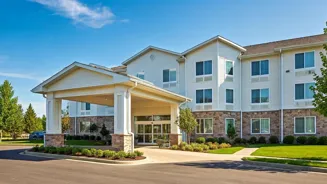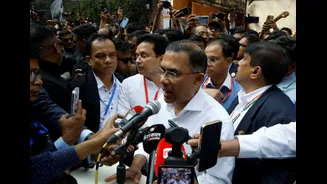Debunking Common Myths
Misconceptions about senior living are widespread, influencing perceptions and decisions. A common myth is that moving to a senior living community means
a loss of independence. In reality, these communities often provide services that free up residents from chores and allow them to pursue their interests. Another myth suggests that senior living is only for the wealthy. However, options range from affordable to luxury, catering to diverse financial situations. Moreover, there’s a belief that senior living is isolating. Contrary to this, these communities foster social interaction and provide opportunities for forming new friendships, combating loneliness. It is crucial to challenge these myths to make informed choices about senior living.
The Realities of Aging
The realities of aging in India are diverse, shaped by cultural norms, family dynamics, and socioeconomic factors. Many older adults face challenges like health issues, financial insecurity, and social isolation. Traditional family structures, while still prevalent, are changing, with younger generations often living and working in different cities or countries. This shift can leave seniors feeling unsupported. Healthcare access is another important consideration; affordability and availability of quality care vary greatly across the country. Financial planning for retirement is vital, but many older adults have limited savings or rely on uncertain income sources. Addressing these realities requires a multifaceted approach, involving accessible healthcare, financial planning resources, and support for maintaining social connections.
Community Living Benefits
Community living is gaining popularity among seniors in India for various compelling reasons. It offers a supportive environment that combats loneliness and isolation, fostering social interaction and a sense of belonging. These communities often provide access to essential services like healthcare, housekeeping, and meal preparation, simplifying daily life. Furthermore, they promote an active lifestyle, with opportunities for recreational activities, fitness programs, and social events. Safety and security are key benefits, as these communities typically have security personnel and emergency response systems in place. For some, community living eases the burden on families, allowing them to focus on their careers and other responsibilities while knowing their loved ones are well-cared for. The combination of these factors makes community living an attractive option for many Indian seniors.
Factors Influencing Choices
Several factors influence Indian seniors' decisions regarding their living arrangements. Financial considerations play a significant role; the cost of senior living options varies widely, affecting affordability. Health and wellness are important, with access to quality healthcare being a key concern. Proximity to family is also a major factor; many seniors prefer to live near their children and grandchildren for support and companionship. Cultural preferences also have a major impact; some seniors value independence, while others prioritize staying within their family or community. Lifestyle preferences such as social activities, access to amenities, and recreational opportunities also shape the choices. The location of the community—whether in a city, town, or rural area—can also influence decisions.
Purposeful Aging in Future
The future of purposeful aging in India is geared towards empowering seniors to lead fulfilling lives. There's a growing emphasis on programs that promote mental and physical well-being, encouraging active lifestyles and lifelong learning. Technology plays a vital role, with digital tools enabling seniors to connect with loved ones, access information, and manage their health. Community-based initiatives are crucial, creating inclusive environments and fostering intergenerational connections. Financial planning and support services will be increasingly important, helping seniors manage their resources and maintain their independence. The focus will shift towards holistic care, addressing not just physical health, but also emotional, social, and spiritual needs. This proactive approach will redefine the experience of aging in India.























